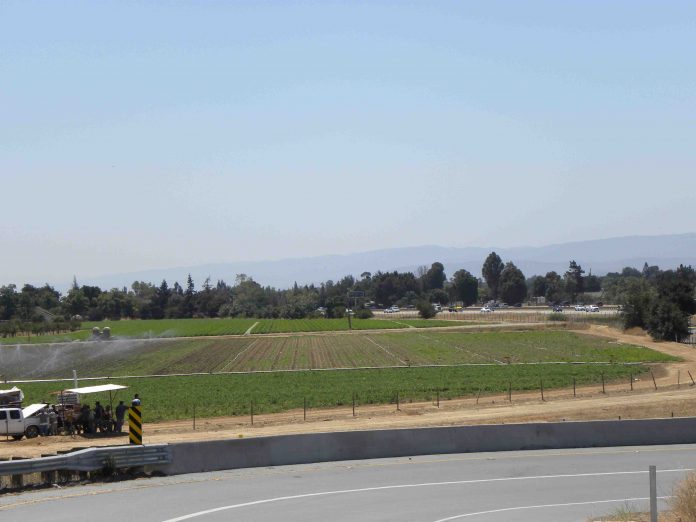
In 2015, the Morgan Hill City Council unanimously approved a $5.3 million purchase of 22 acres of property outside the city limits with the intention of one day building baseball and softball fields. The property has sat untouched for the last four years, and city officials still have no plans in the foreseeable future to use the agricultural site for sports uses.
The property is located at the southeast corner of the US 101 interchange with Tennant Avenue.
According to community engagement officer Maureen Tobin, the city is now considering using the property for agricultural preservation plans. She noted there is no time limit on any potential construction or contracting schedule if the city decides to act on its initial plan for sports fields.
The 22 acres are currently land banked, which means the city has set them aside for a future purpose but is not currently developing the site. However, according to the city, the property is being leased for farming.
“The city did not have funding available for construction of the facility, does not have the funding today and does not expect to construct for many years. The property is still land banked for a future sports park at this time,” Tobin told the Times. “The city council recently directed city staff to explore alternative options for agricultural preservation in the area where the site is located, and that exploration is underway, but does not change the status of the property at this point in time.”
In 2018, Morgan Hill asked the Local Agency Formation Committee (LAFCO) to annex several properties into the city limits, including the property at Tennant and US 101. These properties are part of what is collectively known as the city’s Southeast Quadrant. The request was denied.
The city’s earlier request to LAFCO for a larger-scale annexation in the Southeast Quadrant envisioned a sports/recreation/leisure land use designation, which would include future ball fields at Tennant and 101, the nearby Outdoor Sports Center and other projects proposed at the time by different developers. However, LAFCO denied that request as well.
Within the submission, the city included its agricultural preservation program, which requires developers to pay a fee to ensure that farmland is preserved. If the city does take steps toward using the property permanently for agricultural preservation, an easement can be put in place to preserve the site for farmland or open space in perpetuity.
In 2015, the city paid about $238,000 per acre for the property at Tennant and 101. The purchase was funded by the city’s park impact fund. The city bought the property from NMSBPCSLDHB LP, of which developer Gordon Jacoby was a partner.







